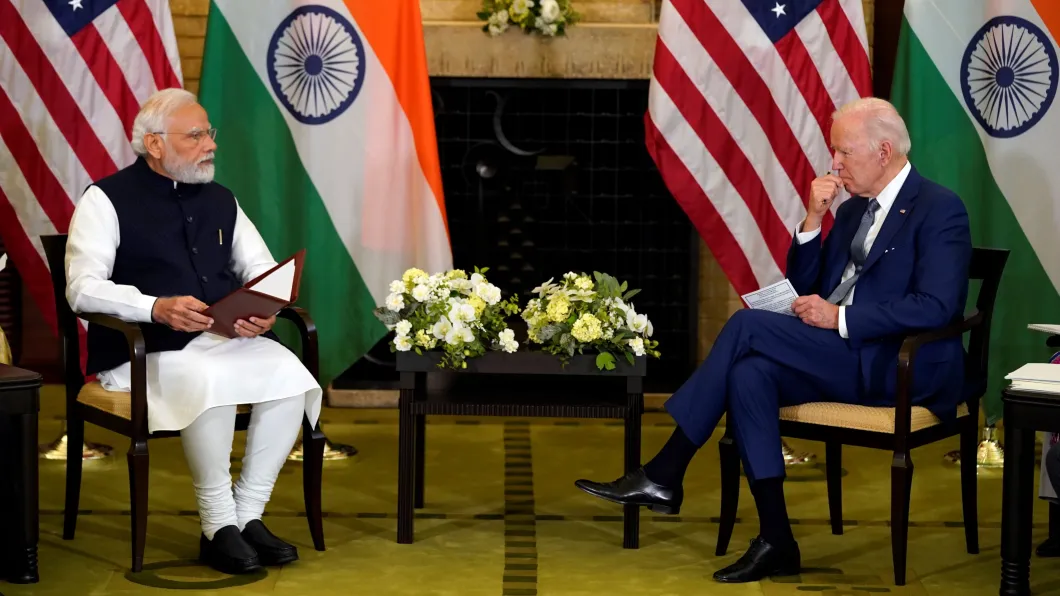Comprehensive Vision for U.S.-India Technological and Defense Collaboration
Introduction
President Joseph R. Biden Jr. and Prime Minister Narendra Modi have underscored the transformation of the U.S.-India relationship into a multifaceted alliance. Rooted in shared democratic values and mutual trust, this alliance spans technological innovation and defense cooperation, aiming to address global challenges and drive progress in the 21st century.
Advancing Technological Collaboration
Enhanced Technological Engagement
The U.S. and India are committed to leveraging technology to strengthen their bilateral relationship. The launch of the Initiative on Critical and Emerging Technology (iCET) in January 2023 is a pivotal step, fostering an open, secure, and accessible technology ecosystem. The initiative calls for active collaboration among governments, businesses, and academic institutions to achieve their shared vision for a strategic technology partnership.
Space Cooperation Milestones
Space exploration and technology are significant areas of cooperation. The agreement between NASA and ISRO to establish a strategic framework for human spaceflight by the end of 2023 includes training Indian astronauts at NASA’s Johnson Space Center and a joint mission to the International Space Station in 2024. The upcoming launch of the NASA-ISRO Synthetic Aperture Radar (NISAR) satellite and the push for commercial space collaboration further solidify this partnership.
Semiconductor and Quantum Technology Synergy
A landmark Memorandum of Understanding (MoU) on Semiconductor Supply Chain and Innovation Partnership aims to bolster semiconductor manufacturing and research in both countries. Investments from U.S. companies like Micron Technology and Lam Research in India’s semiconductor sector are pivotal. The partnership in quantum technology includes the establishment of a joint coordination mechanism and a $2 million grant program for AI and quantum technology development, promoting cross-border research collaboration.
Telecommunications and AI Development
The collaboration extends to creating secure telecommunications networks and resilient supply chains. The launch of Joint Task Forces on advanced telecommunications, including 5G/6G technologies, and public-private cooperation on Open RAN field trials are key elements. Additionally, the focus on responsible AI development includes initiatives to advance AI education, promote commercial opportunities, and mitigate discrimination and bias.
Strengthening Defense Partnership
Strategic Defense Collaboration
The U.S.-India defense partnership is a cornerstone of global security, characterized by joint exercises, defense industrial cooperation, and strategic dialogues. This partnership enhances information sharing, military-to-military ties, and maritime security cooperation.
Industrial Cooperation and Innovation
The Defense Industrial Cooperation Roadmap outlines plans for co-production and collaborative research in defense technologies. Notable initiatives include the manufacture of GE F-414 jet engines in India and India’s role as a repair hub for U.S. Navy assets. The establishment of the U.S.-India Defense Acceleration Ecosystem (INDUS-X) and India’s procurement of General Atomics MQ-9B UAVs, which will be assembled in India, are significant steps forward.
Commitment to Clean Energy Transition
The U.S. and India are dedicated to accelerating the deployment of clean energy to meet climate goals. Collaborative efforts include developing energy storage technologies, green hydrogen initiatives, and the Global Biofuels Alliance. Both nations are also focusing on zero-emissions vehicles, sustainable aviation fuels, and creating investment platforms to support green technology projects.
Shared Strategic Vision and Global Security
The U.S. and India emphasize the importance of a rules-based international order, sovereignty, and territorial integrity. The leaders expressed concern over the conflict in Ukraine, advocating for multilateral system reform and the expansion of the UN Security Council. They reaffirmed their commitment to the Quad partnership for a free and prosperous Indo-Pacific region and called for an inclusive federal democratic system in Myanmar.
Conclusion
The U.S.-India partnership, driven by a commitment to democratic values and mutual trust, is positioned to address global challenges through technological and defense collaboration. This comprehensive strategy not only strengthens bilateral ties but also contributes to global stability and prosperity, ensuring a future grounded in shared principles of democracy, freedom, and the rule of law.
